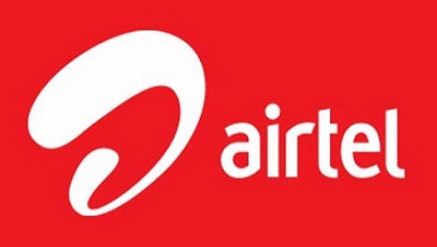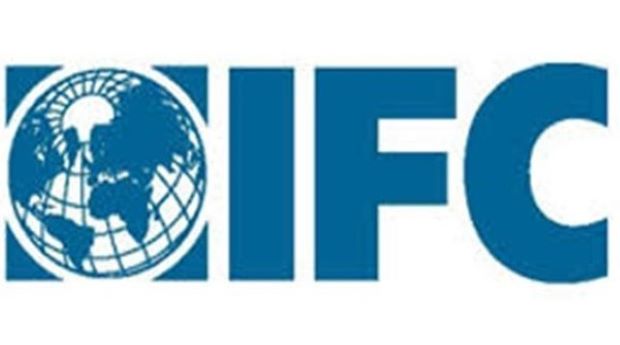Broadcasting
Airtel One Mic: Winners Emerge in Abuja, PH

Ekundayo Monja, a Theatre Arts Undergraduate of Ahmadu Bello University,has emerged winner of the North Region final of Airtel One Mic, a musical talent-hunt competition for tertiary institutions created by leading telecom service provider, Airtel Nigeria.
The competition, which was held in Gwagwalada, Abuja, featured five other finalists, comprising two students each from University of Abuja, Nassarawa State University and another from Ahmadu Bello University, Zaria, in keen contest for the star prize of a brand new KIA Picanto and a recording deal.
Monja, also known as LASE, was adjudged winner by the judges; Jesse Jagz, Black Magic and Masterkraft, after a thorough assessment of the contestants based on creativity, appearance, stage performance and connection with crowd during the freestyle, acapella and studio recorded track performances.
Raphael John aka Ray Jey, a Mass Communication undergraduate and Faisal Sanusi also known as Killuminati, a student of Psychology represented Nassarawa State University while Olawale Amao, aka Walzee, a Student of Political Science and his brother, Kunle aka Kronic appeared for UniAbuja.
Kevin Godwin Gaiya aka Kevin Words, also a Theater Arts Undergraduate of ABU as well as LASE made up the list of the finalists.
Earlier in the East Region final of the competition held in Port Harcourt, a first year Music undergraduate of University of Port Harcourt, Olumuyiwa Jeffery Wenegha, outperformed five other zonal finalists to win the star prize.
The six finalists comprised two students each from University of Port Harcourt, University of Calabar and Institute of Management Technology (IMT), the institutions grouped under the East Region of the competition.
Wenegha, whose stage name is Acetune, was declared winner by the trio of rap artistes Phyno, Ill Bliss and Masterkraft who were the judges for the competition which was held in Port Harcourt, Rivers State.
Samuel Ndude, aka Success, a first year National Diploma Mechanical Engineering student of IMT and Kei Ndutimi, alias Timi Kay, a 200 Level Geology Student of Uniport clinched the second and third places respectively.
The North final marks the successful conclusion of the music talent hunt competition which made waves among students across Nigeria.
Alongside Monja and Wenegha, the competition which first took place in May, has produced three other regional winners.
Temidayo Omoniyi, aka ‘Zlatan’, an ND 1 Business Administration Student of Moshood Abiola Polytechnic, Abeokuta (MAPOLY) emerged the first winner of the competition after defeating other contestants from Federal University of Agriculture, Abeaokuta and The Bells University, Otta.
The second regional contest which comprised six finalists from University of Lagos, Yaba College of Technology and Lagos State University was won by Oladotun Alade, aka ‘Dotman’, a second year undergraduate of the University of Lagos, while another second year 200 level Psychology student of Ekiti State University, Alalade Ololade, popularly called ‘Jay Dreamz’ defeated other finalists from University of Ibadan and University of Ilorin to win the West Region final.
Speaking on the objective of the initiative, Mr Maurice Newa, chief commercial officer of Airtel Nigeria, explained that Airtel One Mic was designed to discover and promote musical talent from tertiary institutions in Nigeria, in line with the company’s commitment to consistently encourage and empower Nigerian youths towards achieving their dreams through various identified passion points
He reiterated the Telco’s commitment to continue to provide enabling platforms which will empower talented youths to actualise their dream.
“As a youth centric organisation, we are committed to empowering talented youths across the country by providing and supporting enabling platforms that will not only provide them the ladder to success but also create opportunities for them to harness their skills professionally,” he said.
Broadcasting
Mastercard Highlights Africa’s $16.5Bn AI Potential and Path to Digital Empowerment

Mastercard has today released its latest whitepaper, Harnessing the transformative power of AI in Africa, a pan-African study of the continent’s readiness, opportunity and roadmap for responsible artificial intelligence (AI) adoption.

Mark Elliott, Division President, Africa at Mastercard (L) and Ambassador Philip Thigo, Special Envoy on Technology in Kenya (R), at the official launch of the Mastercard whitepaper which provides insights on harnessing the power of AI in driving digital transformation
The whitepaper provides detailed insights into how AI—if deployed responsibly and inclusively—can unlock transformative outcomes across the continent’s major industries, including agriculture, healthcare, education, energy and finance.
With Africa’s AI market projected to grow from USD 4.5 billion in 2025 to USD 16.5 billion by 2030 according to a recent report from Statista, the paper presents a clear case for multi-stakeholder collaboration and investment. It highlights how Africa’s unique demographics, mobile-first infrastructure and entrepreneurial spirit position it as an active architect of the future.
Mark Elliott, division president, Africa at Mastercard, commented: “Africa’s engagement with AI is already reshaping lives — not just in labs, but in farms, clinics and classrooms. To unlock its full potential, we need investment in infrastructure, data, talent, and policy. At Mastercard, we believe responsible, locally rooted AI can drive inclusive growth and connect more people to opportunity.”
The whitepaper outlines the potential positive impact of AI on digital infrastructure, policy and governance, research and development, local language processing and investment into Africa.
It also explores how AI can accelerate job creation, with up to 230 million digital jobs projected by 2030 and increase access to formal finance through AI-enabled credit scoring and fraud prevention.
Greg Ulrich, chief AI and data officer, Mastercard, said: “AI is only as powerful as the trust behind it. At Mastercard, we’re committed to building AI that’s responsible, inclusive, and built to bring value to our customers, partners and employees. This isn’t just innovation—it’s innovation with integrity.”
Regional highlights covered in the whitepaper include:
South Africa: South Africa attracted USD 610 million in AI-focused venture capital in 2023, with total AI investment expected to reach USD 3.7 billion by 2030. With the highest data and infrastructure readiness in Africa, the country is solidifying its role as a continental leader in AI research and application. It is home to the Artificial Intelligence Institute of South Africa which serves as a gateway for students and professionals to access world-class education, research and industry news. National plans aim to develop up to 300 AI start-ups and train 5,000 AI professionals by 2030, creating the foundation for a vibrant, homegrown AI ecosystem.
Kenya: An emerging leader in AI innovation, Kenya has leveraged its “Silicon Savannah” status to securely deploy AI across sectors. Platforms like Tala use mobile data for credit scoring, while Jacaranda Health’s UlizaLlama, an AI-powered chatbot, provides maternal health support in five local languages. The newly launched National AI Strategy (2025–2030) outlines the government’s commitment to positioning Kenya as a regional leader in AI research and development, innovation and commercialization for socioeconomic development.
Nigeria: Nigeria ranks second in the number of AI startups in Africa and secured USD 218 million in VC investment in 2023. As one of Africa’s most dynamic AI ecosystems, Nigeria is using AI to personalize learning (Rising Academies), deliver microfinance via Kudi.ai, and strengthen governance with AI tools that monitor public fund allocation. With a $1.4 billion projected AI market size by 2025, the government’s proactive approach, combined with growing private-sector innovation, suggests promising growth in AI applications.
Morocco: An emerging AI hub in North Africa, Morocco is advancing AI adoption across healthcare, energy, agriculture, and finance. Institutions such as Mohammed VI Polytechnic University and DeepEcho are driving local innovation, while the MoroccoAI Annual Conference is shaping national dialogue on the future of AI. Under its Digital 2030 strategy, Morocco aims to attract USD 1.1 billion in investment and create 240,000 digital jobs by 2030. Despite this progress, the whitepaper warns that data fragmentation, language exclusion and regulatory inconsistency could deepen the digital divide.
Harnessing the potential of AI in Africa will be instrumental in accelerating financial inclusion and driving the continent’s digital and economic growth. Strategic collaborations between governments, fintechs, and global partners will be key to unlocking AI’s full impact.
Mastercard’s whitepaper draws on insights from leading African technologists, policymakers, academics and entrepreneurs, including interviews with UNESCO, the African Center for Economic Transformation, and fintech leaders across the region.
Broadcasting
IFC Strengthens Support for Africa’s Creative Economy with Investment in Filmmakers Market

To enhance access to production services in Africa’s film and entertainment industry, IFC announced an investment into Filmmakers Mart (FMM), Africa’s first integrated digital production platform.

FMM connects creatives to essential production services including location scouting, logistics coordination, catering, and permit acquisition through a centralized system.
It replaces fragmented service sourcing with a cost-effective, time-saving model, using AI-powered tools and automated workflows to enhance service quality and ensure access to vetted providers and filming locations.
IFC’s investment will support FMM to expand from its current markets in Nigeria, Kenya, Ghana, Morocco and South Africa into new markets. It will also fund the development of new platform features, including subscription models, post-production tools, and training programs designed to serve a growing community of creators.
The partnership will help strengthen Africa’s creative economy, helping creative professionals overcome the access to market barriers faced by so many on the continent.
This marks IFC’s first investment in Nigeria’s audiovisual sector and its first co-investment with Sony Innovation Fund Africa.
“We’re building the operating system for the creative industries in emerging markets; an ecosystem of interconnected tools and services designed to eliminate friction, unlock collaboration, and scale access to opportunities for creatives and entertainment businesses,” said Eric Kafui Okyerefo, CEO, Filmmakers Mart.
“Having IFC and Sony Ventures as strategic partners strongly validates this vision. Their support enables us to deepen our impact, expand globally, and continue solving the structural challenges faced by storytellers and producers in these markets.”
Sony Innovation Fund’s investment will provide FMM with access to its global network and industry expertise in content distribution, helping the platform strengthen its market position.
“At Sony Innovation Fund, we are committed to supporting technologies and platforms that empower creators and drive its growth,” said Antonio Avitabile, Managing Director, Sony Ventures, EMEA. “Filmmakers Mart is addressing real infrastructure gaps in Africa’s production ecosystem with a smart, scalable solution. We’re proud to partner with IFC on this investment, and excited to help FMM unlock new opportunities for the region’s vibrant creative community.”
“Africa’s film and entertainment sector is brimming with talent, but talent alone is not enough. It needs the right tools, platforms, and investment to thrive,” said Dahlia Khalifa, IFC Regional Director for Central Africa and Anglophone West Africa. “Our partnership with Sony to support Filmmakers Mart reflects IFC’s commitment to harnessing technology and innovation to support Africa’s creative industries and help scale opportunities for the next generation of storytellers across the continent.”
This partnership, which is helping more women, young people, and underrepresented groups earn incomes and grow sustainable businesses within the digital creative economy, bolsters IFC’s broader aims to create jobs, foster inclusion, and support digital innovation across Africa.
Broadcasting
5 Reasons Why Payroll Outsourcing Might Be the Smartest Move You Make

Accurate and timely payroll impacts costs, tax compliance, and employee morale. Many organisations assume that insourced payroll is inherently superior. Yet in today’s dynamic business environment, this assumption can be more costly. It can burden valuable personnel, increase compliance risks, and saddle organisations with expensive, yet obsolete, software.

Workplaces are becoming more complex through a wide variety of employment conditions, frequent regulation changes, and growth risks (especially when operating in multiple regions). Payroll systems don’t always keep up, which is why over a third of companies are dissatisfied with their internal payroll systems.
“The importance of accurate and timely payroll is undeniable. But assuming that insourcing payroll is inherently superior misses the mark. In today’s dynamic business environment, clinging to outdated internal systems is costly, diverts valuable personnel, and complicates software management,” says Heinrich Swanepoel, Head of Business Development at Deel Local Payroll, powered by PaySpace.
Outsourced payroll’s strategic advantages
Outsourcing payroll is a strategic move that adds scale and flexibility to an organisation’s operations. Whether it’s for five or five thousand employees, one office or multiple countries, using an experienced and technologically capable outsourced payroll provider creates crucial advantages in workforce management and adaptability.
Here are five key reasons why payroll outsourcing is a game-changer:
- Remove Legacy System Limitations and Costs: Outdated payroll software an expose you to delays, errors, and fragmented workflows. Outsourcing with modern technology provides flexibility. Providers can efficiently handle payroll tasks regardless of onboarding surges, market expansions, or workforce adjustments.
- Empower Staff for Higher-Impact Work: Outsourced experts add knowledge, coupled with payroll automation, secure collaboration tools, data integration, and enhanced financial visibility. They help key personnel in payroll, HR, and finance to focus on strategic, high-value priorities.
- Navigate Payroll Compliance: Outsourcing specialists make it their business to know local and international tax rules, labour laws, and data regulations. They use software with built-in compliance checks, audit trails, and secure document tracking. The provider shares and even inherits the responsibility of payroll software compliance such as GDPR, POPIA, SOC 1 & 2, and ISO 27001.
- Flexible payroll management: Outsourced payroll providers use scalable and flexible software to align with organisational changes, enabling their clients to adapt without reconfiguring payroll departments with restructuring or new hires.
- Access Advanced Features: Keeping up with new features and aligning them with operations is expensive and disruptive. Outsourced payroll providers introduce cutting-edge technologies like cloud computing, artificial intelligence, and data analytics as part of their core business strategies. They offer seamless integration with client business systems for real-time, fully compliant payroll operations that the client controls without adding technical risks.
Evaluating an outsourced payroll partner
Outsourcing payroll creates huge advantages. But not all outsourced payroll providers are the same. The best candidates combine human expertise with the advantages of modern cloud-native payroll platforms.
To evaluate a provider, test their payroll expertise and compliance knowledge. Security and data protection are non-negotiable, and assess their track record with other clients. Look at what software they use—the capabilities of the software and how well their people can use those features are as important as the staff’s professional capabilities. Are they masters of their tools as well as their craft?
Interrogate their service levels and how they extend capabilities to clients, such as self-service and ad hoc reporting. Evaluate the technology platform in terms of real-time data access, automated calculations, integration with HR and accounting tools, and compliance.
“Outsourcing payroll isn’t just about saving time — it’s a strategic move that positions your business for growth, compliance, and agility,” says Swanepoel. “With the right partner, you can reduce costs, streamline operations, and focus your energy where it matters most: on your people and your business.”

 Telecom2 days ago
Telecom2 days agoNCC to Sanction Operators over Regulatory Violations

 General News2 days ago
General News2 days agoCustoms Ditches Fast Track Scheme for Authorised Economic Operator

 News2 days ago
News2 days agoFG to Move 5m Homes to Clean Cooking by 2030 — Minister

 Telecom2 days ago
Telecom2 days agoAirtel Africa Signs Multi-year Strategic Partnership with Xtelify

 E-Business1 day ago
E-Business1 day agoReport Reveals Over Half of Security Experts Overwhelmed Managing Cybersecurity Tools from Multiple Vendors

 E-Financial2 days ago
E-Financial2 days agoSEC DG Warns as Crypto Adoption Rises in West Africa Without Proper Regulations

 E-Financial2 days ago
E-Financial2 days agoNOVA Bank Deepens Market Presence with New Branches and Regional Focus

 Telecom1 day ago
Telecom1 day agoMTN & Ultima Studios Kick Off Hunt for Nigeria’s Next Afrobeats Icon
























